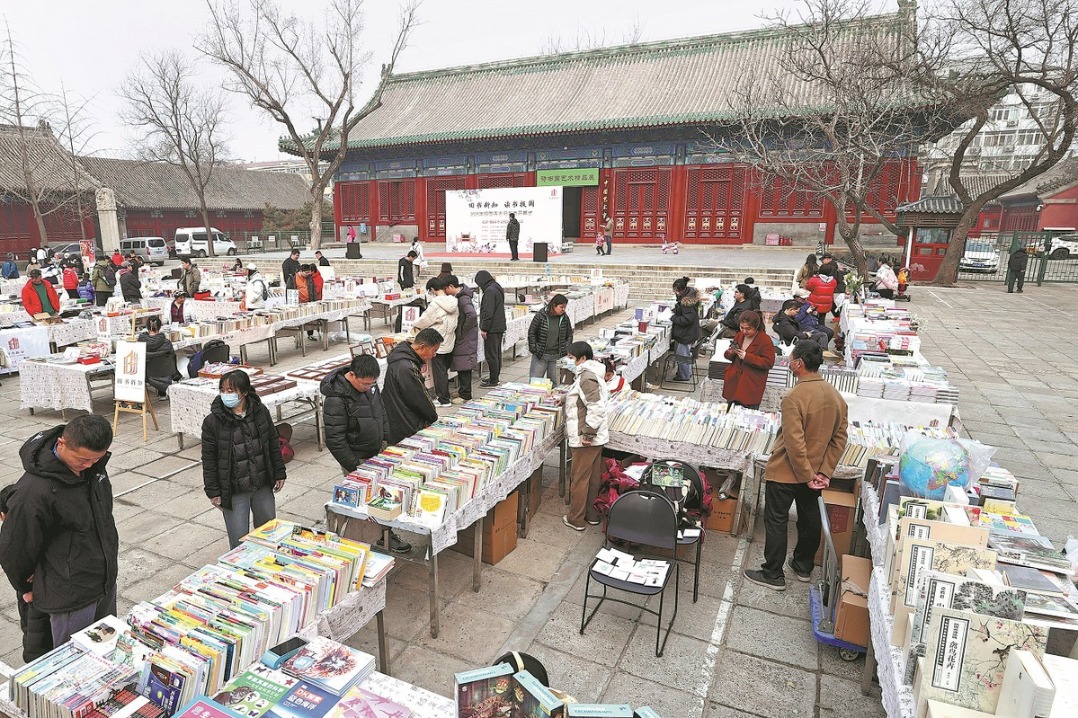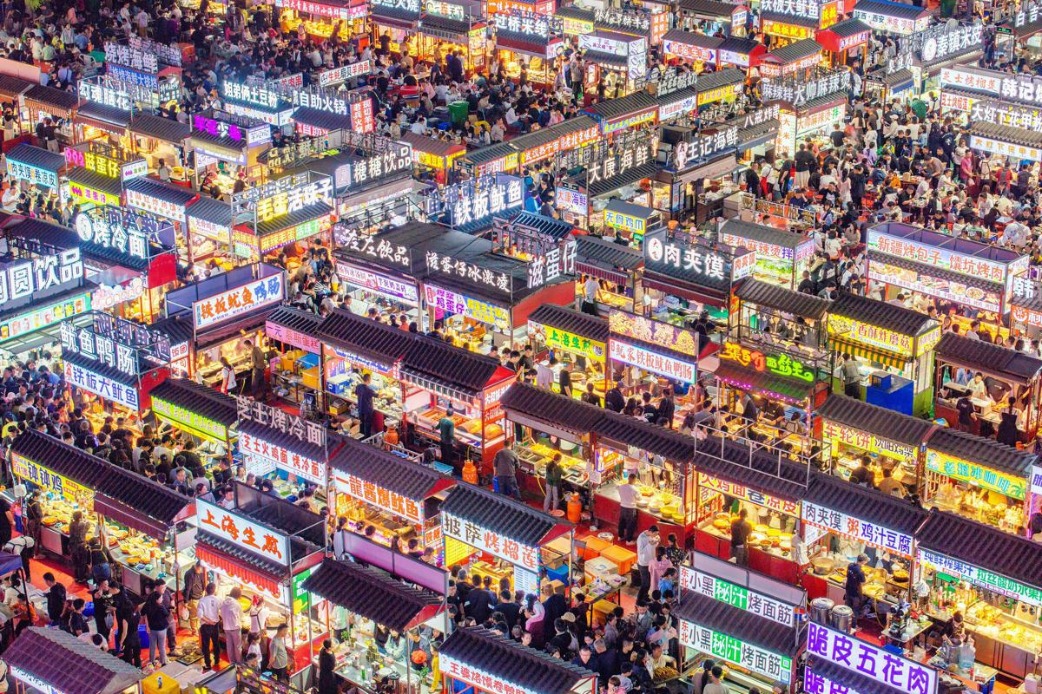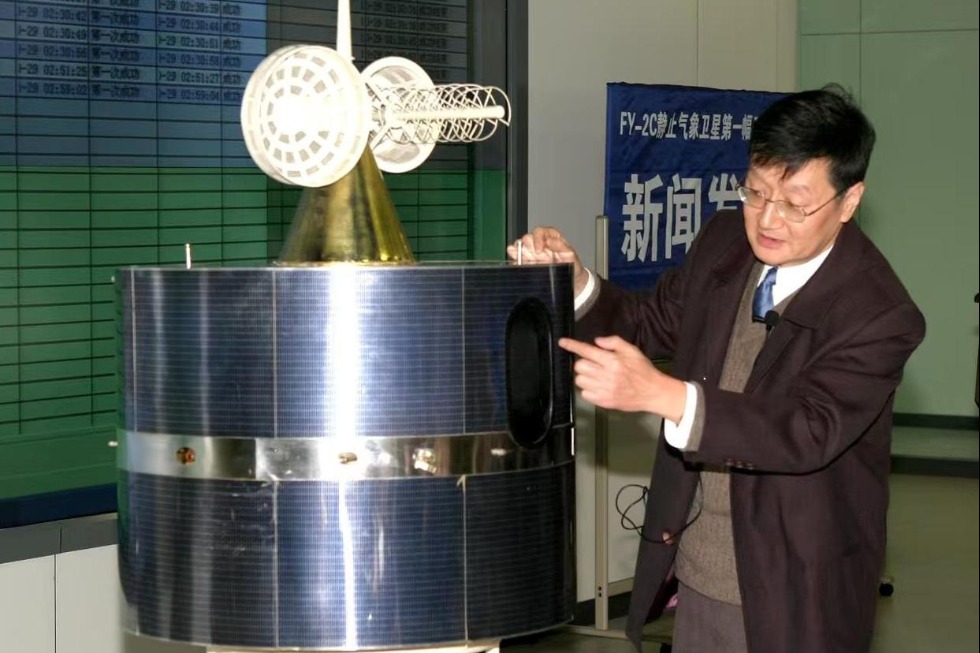China's tightened drug control measures bring major results
Big strides made with whole-category restrictions; number of abusers declines

Since its whole-category control of fentanyl-related substances, China has not received reports from other countries about seizing such substances that originate from China, an official told China Daily.
Wu Tingfang, head of the Precursor and New Psychoactive Substance Control Division of the Ministry of Public Security's Narcotics Control Bureau, was speaking ahead of the International Day Against Drug Abuse and Illicit Trafficking, which fell on Thursday.
China's inclusion of all nitazenes, a class of synthetic opioids, together with 12 other new psychoactive substances on its controlled drug list, which will take effect on Tuesday, is one of its latest moves to tighten such control.
Previously, China began regulating all fentanyl-related substances in 2019, even though it hasn't seen large-scale abuse of the drug, and in 2021, it began regulating the whole category of synthetic cannabis.
These moves have made China the first country in the world to have implemented whole-category control of the three classes of drugs, Wu said.
The addition of all nitazenes to the controlled drug list will bring major results, just as the scheduling of fentanyl and synthetic cannabinoids did, she said.
China has cracked down on the illegal processing and trafficking of synthetic cannabis, and has curbed the spread of its abuse, she said, adding that the number of cases involving the drug, the number of suspects arrested, the quantities of relevant substances seized, and the number of people abusing them have dropped significantly.
The country has recorded a continuous decline in the number of drug users over the past years.
By the end of 2024, the number of such users had fallen 16.7 percent year-on-year, accounting for only 0.054 percent of the country's population, according to a report released last week by the Office of China National Narcotics Control Commission.
The drop has been accompanied by a changing pattern of drug abuse.
The number of people abusing traditionally prevalent drugs, such as opioids and methamphetamine, has decreased, while the abuse of nontraditional drugs and unregulated substances has become more prominent, according to the report.
In addition, China, as a party to the United Nations' drug control conventions, has strictly fulfilled its international duty, Wu said.
The issue of illicit drugs is worsening around the world, according to Wu. "Some countries have seen wide abuse of new types of drugs, represented by new psychoactive substances, leading to a large number of deaths and serious social problems," she said.
In response, China's full regulation of fentanyl, synthetic cannabis and nitazenes "is an important measure to prevent the harm posed by new types of drugs and protect people's health", Wu said.
"It also shows China's efforts to participate in global governance on drug control and maintain security and stability of the world," she added.
Immigration management authorities in China have cracked 205 cases of illicit drugs at the country's entry ports so far this year, capturing 262 suspects and seizing 2.42 metric tons of drugs, the National Immigration Administration said on Thursday.
The authorities will continue to tackle illicit drug crimes harshly, conduct in-depth analysis of drug trafficking routes and methods, and readjust their responses accordingly, an official with the administration said.
Under the full regulation, no organization or individual is allowed to produce, buy, sell, transport, use, store, import or export fentanyl, synthetic cannabis or nitazenes, except for certain substances that are permitted by law, according to Wu.
The full regulation came after much deliberation, she said, adding that the impact on these substances' lawful use, such as in medicine, industries, scientific research and other sectors, should be minimized.
The Ministry of Public Security, the National Health Commission and the National Medical Products Administration have worked closely together for this purpose, Wu said.
Exceptions may be made for, and the authorities may move off the controlled drug list, certain substances that are found to serve lawful purposes, she said.
- China's tightened drug control measures bring major results
- Beijing's old book market revived by new wave of collectors
- Five-year plans chart steady progress
- Ten photos from across China: June 20 - 26
- Shenzhou XX crew complete second spacewalk outside Tiangong station
- 'Cultural cleansing in Taiwan is bound to fail'





































